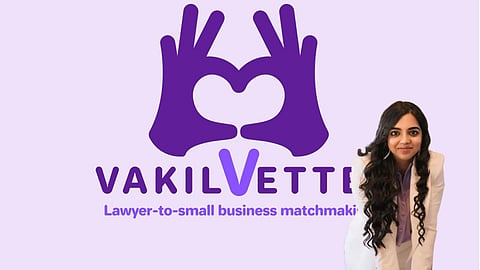
- Latest Legal News
- News
- Dealstreet
- Viewpoint
- Columns
- Interviews
- Law School
- Legal Jobs
- हिंदी
- ಕನ್ನಡ

There’s a peculiar silence hanging over India’s legal community — and it’s not coming from the courtrooms. It’s digital. It’s psychological. It’s the sound of lawyers second-guessing whether posting a contract tip on LinkedIn might count as “solicitation.”
At the centre of this silence sits Rule 36 of the Bar Council of India Rules — a provision originally meant to stop ambulance chasing, now increasingly seen as a handbrake on progress. The rule’s blanket prohibition against “advertising” and “soliciting work” has morphed, over time, into an unclear and unforgiving lens through which nearly every public utterance by a lawyer is scrutinized.
The message is loud. The profession must stay quiet.
The legal profession isn’t just being asked to maintain dignity. It’s being asked to sacrifice discovery.
No paid ads? Fair.
No testimonials? Reasonable.
But no content — even when it educates or clarifies? That’s where the rule begins to defeat its own purpose.
Today, lawyers can’t:
• Participate in directories (unless tightly controlled)
• Share content that may result in client contact
• Build a public-facing practice narrative — even if it’s rooted in compliance
Compare this to other regulated professionals: chartered accountants, doctors, management consultants. They speak openly. Strategically. They are discoverable. Why are lawyers still told to be invisible?
In 2023, the Supreme Court ruled against JustDial and Quikr, barring lawyer listings as violative of Rule 36 and the Advocates Act. The intent was noble: stop commodification.
But it set a dangerous precedent — that visibility itself is suspect.
And so, even BCI-aligned platforms like Vakil Vetted, which:
• Do not publicly list lawyers
• Do not use reviews, ratings, or price comparisons
• Do not promote individual names or firms
• Do not run individual lawyer ads or lawyer featuring ads
• And do not charge for leads
… find themselves defending their very existence.
Our platform is built around a simple premise: If legal advice must be earned through trust, we should help people find trustworthy lawyers — not louder ones.
Everyone.
• A small business owner in Raipur who wants help with unpaid invoices ends up on a freelance gig site.
• A lawyer in Lucknow, who understands franchise law inside out, is never found because she refuses to “market.”
• A founder in Chennai pays too much for a basic vendor agreement, convinced that higher prices equal legitimacy.
This is not a system. This is a maze.
The silence caused by fear of Rule 36 is not protecting clients. It’s keeping them in the dark.
The 2024 Ipsos Trustworthiness Index ranked the legal profession among the least trusted in India. That’s not a branding problem — it’s a visibility and access problem.
Platforms like Vakil Vetted are attempting to restore that trust, but not through marketing tricks. Through structure.
We don’t run a marketplace. We run a matchmaking engine.
Clients are never shown lists. Lawyers are never rated. The connection is internal, need-based, and followed by a consent-driven discovery call — all without breaking Rule 36.
Still, the legal profession hesitates to join. Not because of what we do — but because of what we might be mistaken for.
There is a difference between soliciting and structuring.
There is a difference between hawking services and helping clients make informed choices.
And most of all, there is a difference between advertising and being accessible.
Until Rule 36 is brought in line with the realities of a tech-enabled professional economy, the profession will remain trapped in its own silence — one where the right lawyer is never found, and the wrong assumptions are always made.
Lawyers are not marketers. But they are narrators of their own value. If they cannot speak — even in a dignified, compliant way — how can we expect the public to listen?
Vakil Vetted is not trying to change the rules. We’re trying to show what playing by the rules could look like — if trust, not fear, became the compass.
It’s time the legal profession stopped treating visibility as a vice.
Because in today’s legal economy, silence is no longer just safe — it’s self-sabotage.
About the author: Prachi Shrivastava is the founder of Lawfinity Solutions and Vakil Vetted. She writes on legal market innovation, perception strategy, and professional trust.
Would you like to get discovered by curated clients in a compliant manner? Apply here.
Disclaimer: The opinions expressed in this article are those of the author(s). The opinions presented do not necessarily reflect the views of Bar & Bench.